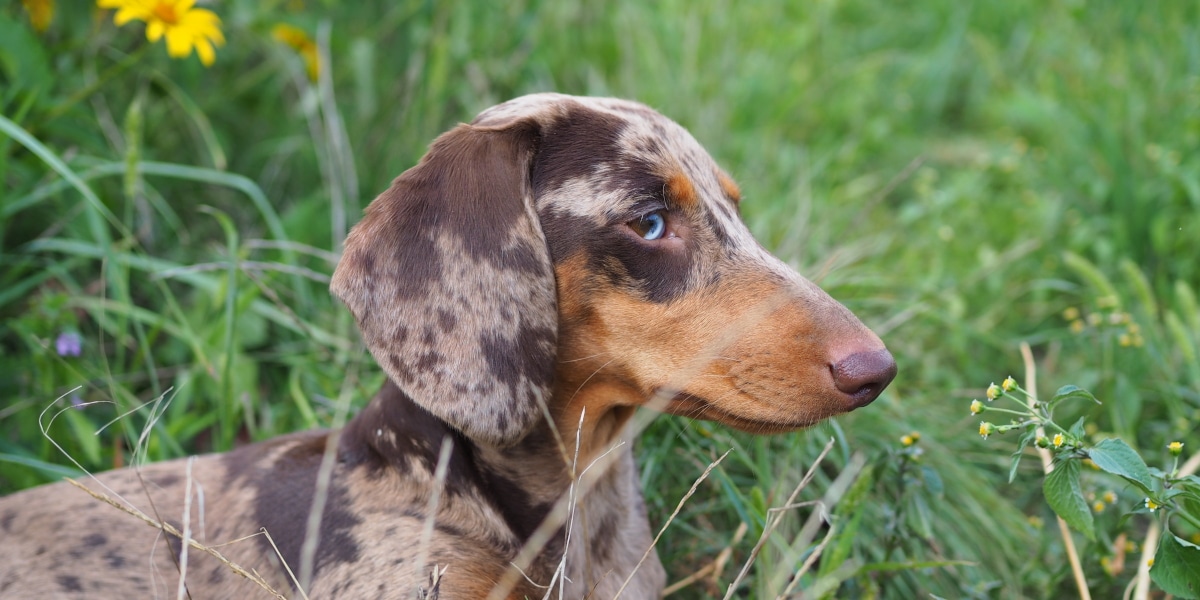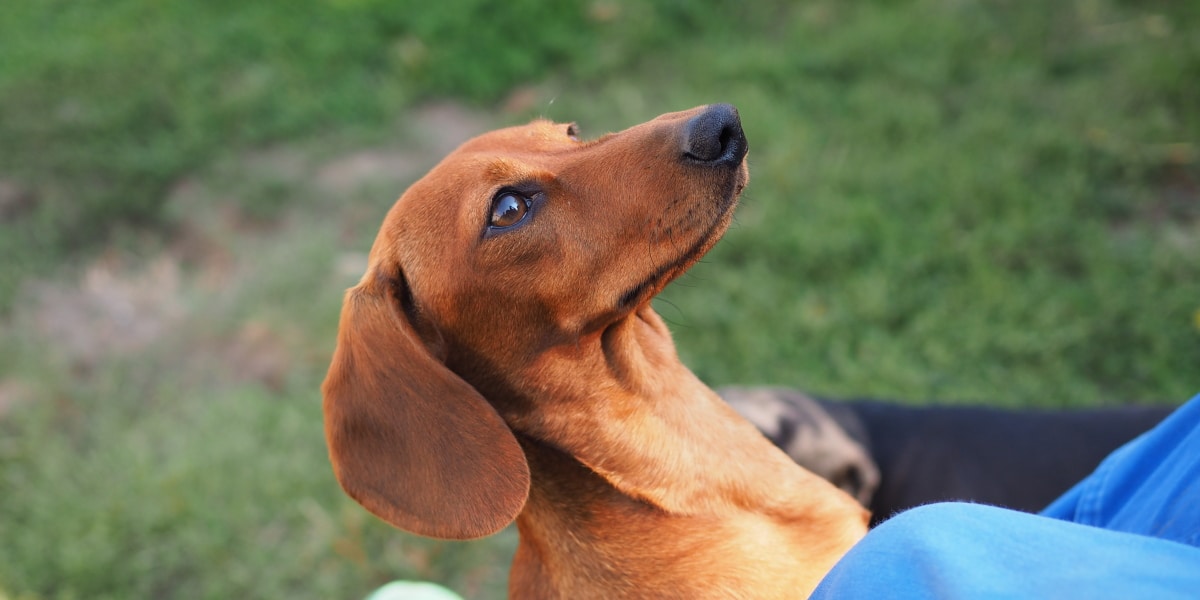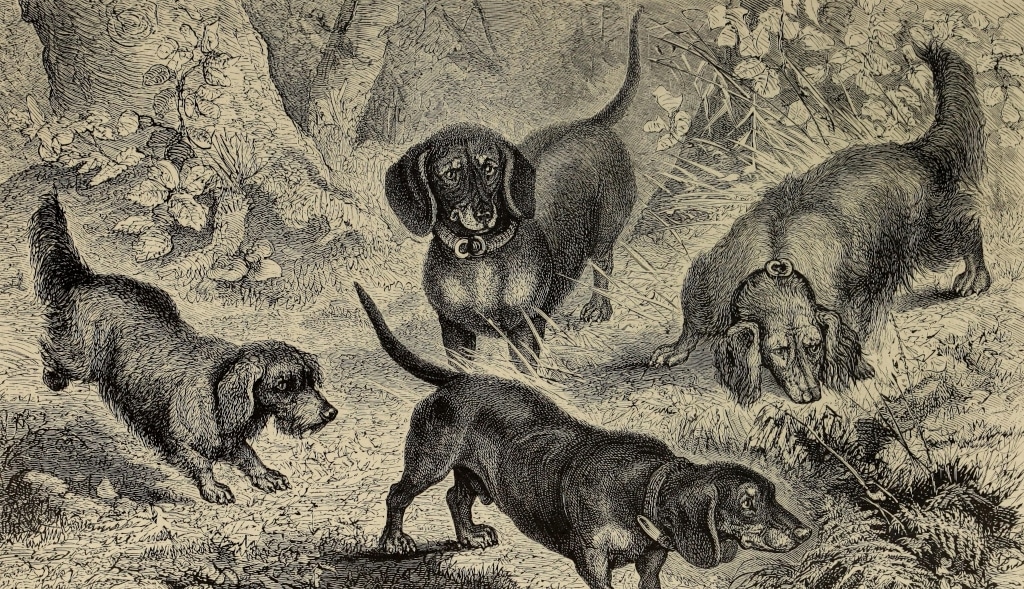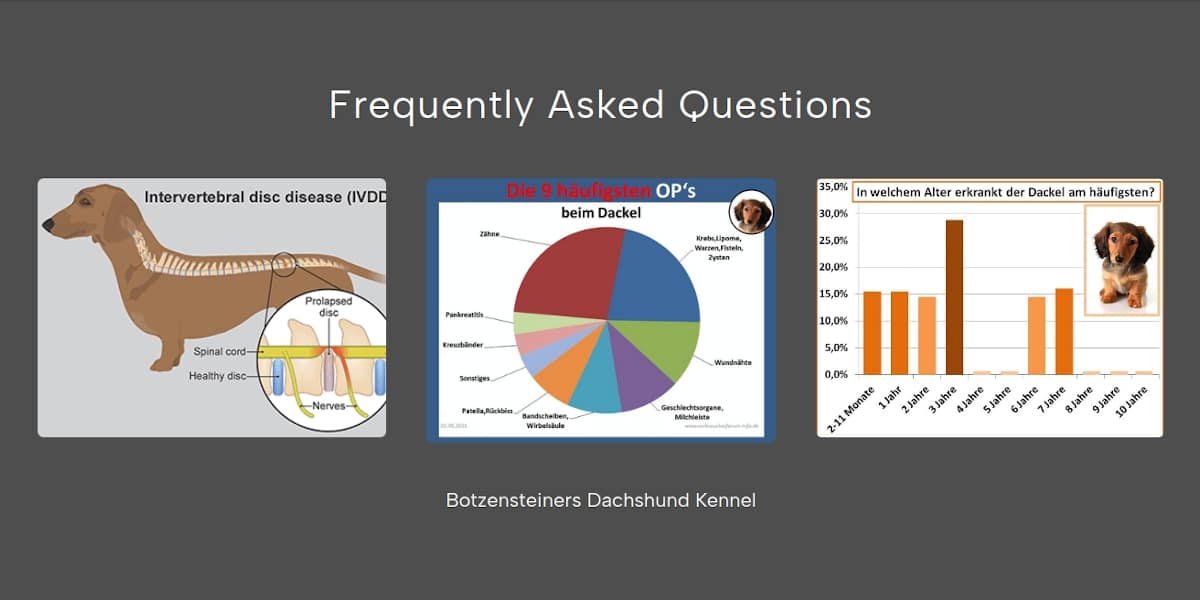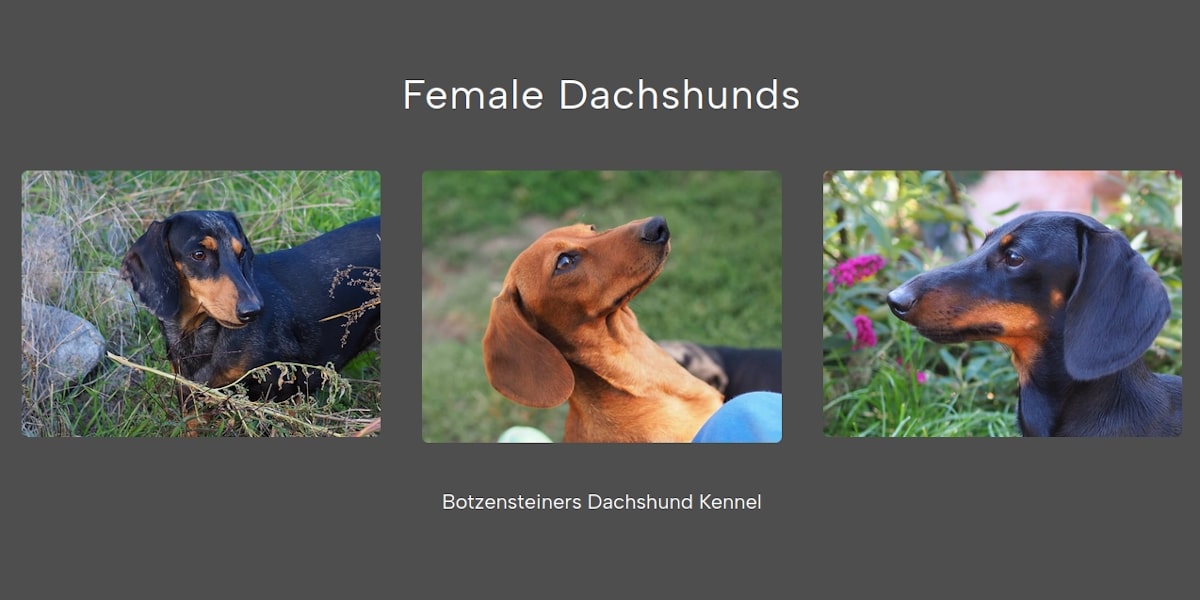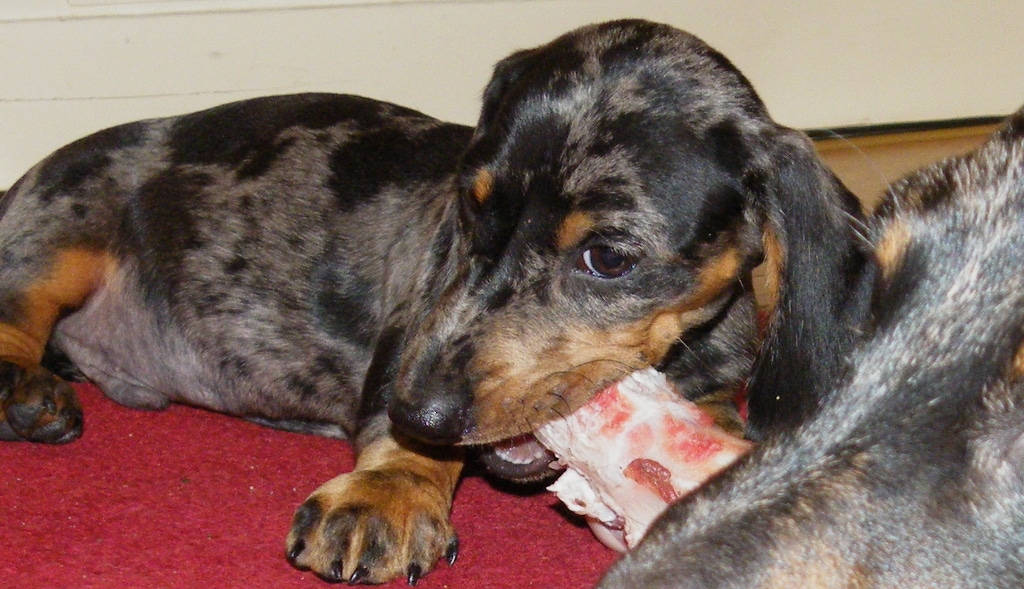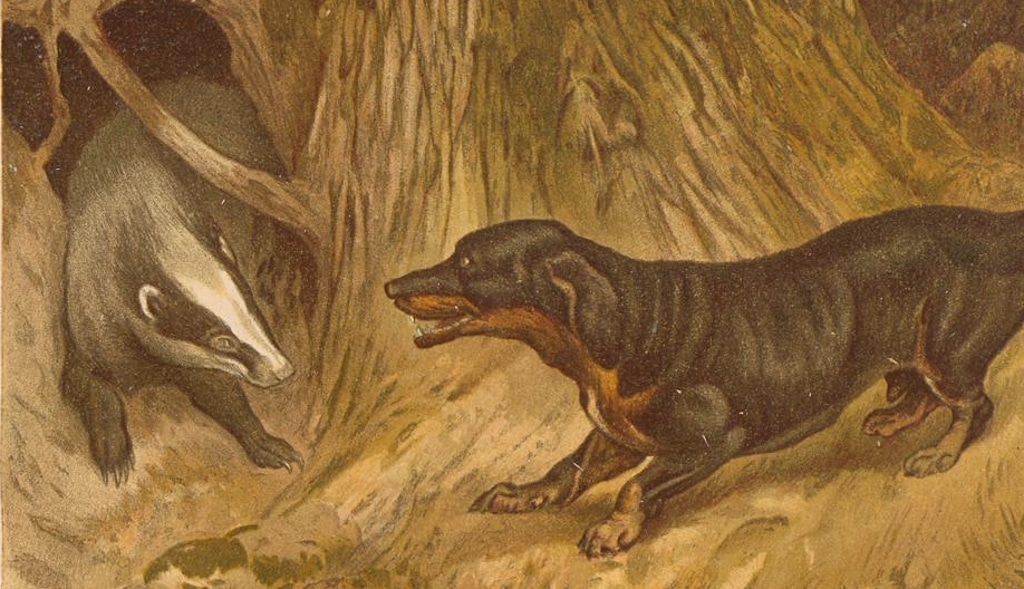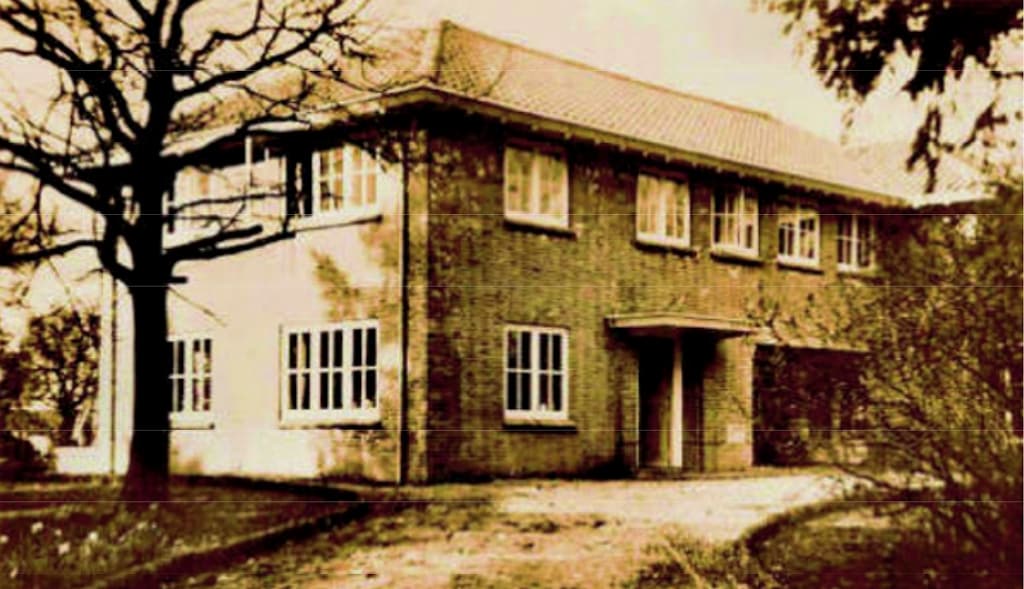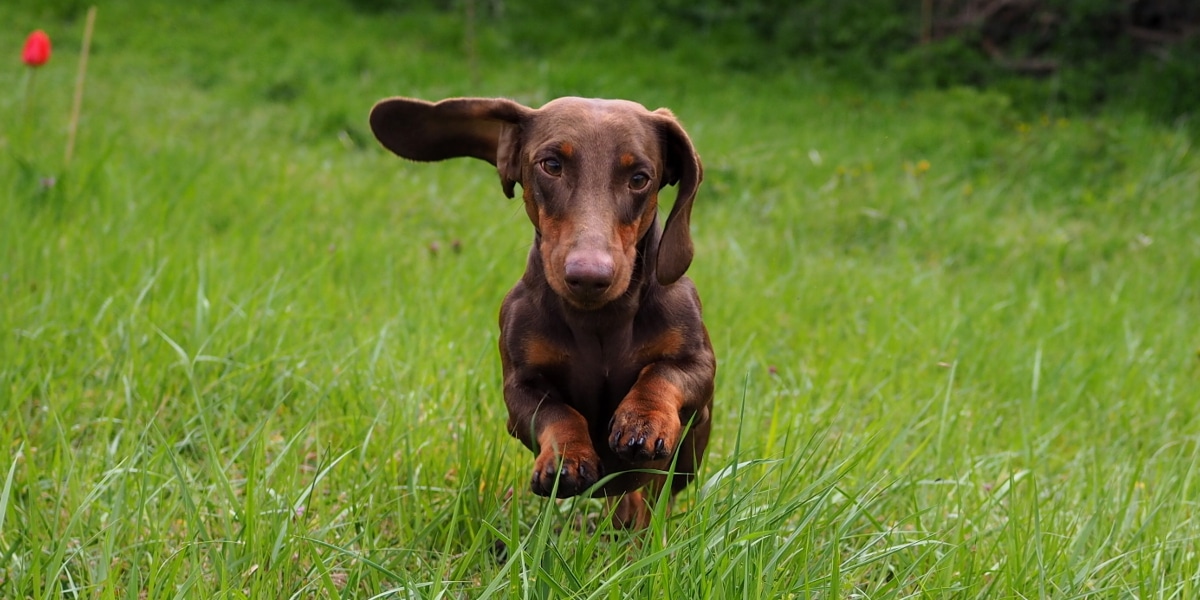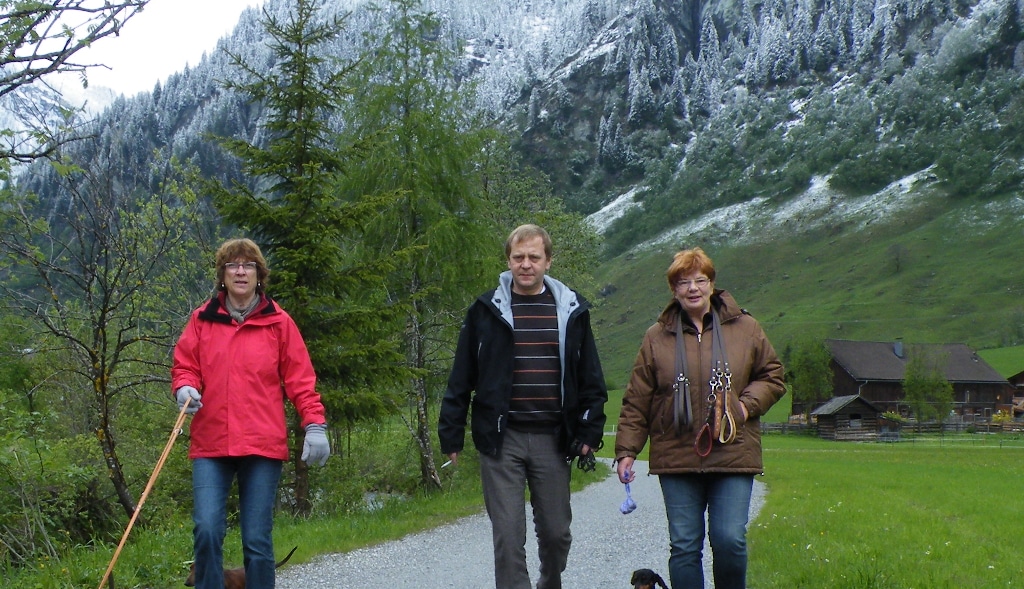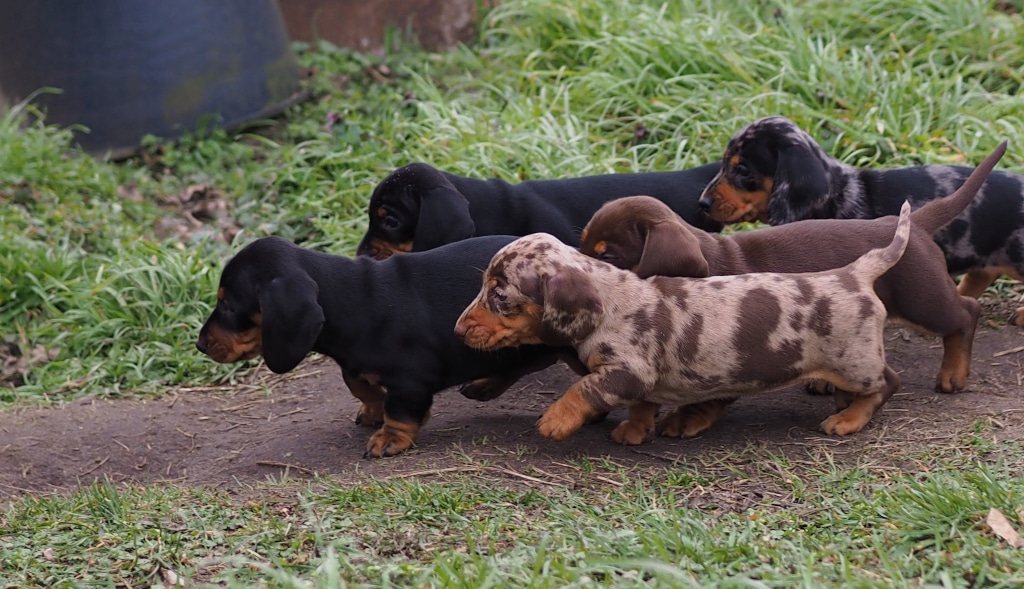Dachshunds are long-lived. Longevity in old age also means “age-related degeneration”. Who, to his disappointment, has not already heard this from his family doctor?
Apart from that, Dachshunds, like other “working dogs”, belong to the rather robust breeds. A dog that could not do its work because of “bred-in” health impairments, which in the case of the Dachshund is the versatile use in hunting, would be a contradiction in terms.
But now from the general to the specific: The one thing that can be said for all Dachshunds is that the architecture with short legs and a relatively long back seems to favour the occurrence of back problems. This tendency seems to be present in all short-legged dog breeds. Which influence the housing conditions have on the actual occurrence of back problems has not been conclusively clarified. The only thing that seems to be certain is that overweight, lack of exercise or even overstraining through incorrect movement should be avoided. The notorious “teckel’s palsy” does not exist as an independent clinical pattern. You should not take anyone seriously who still uses this word. The only thing that does exist, as in all dogs, are slipped discs.
It is currently being discussed whether calcium deposits in the intervertebral disc bodies, which can be shown and recorded radiologically, favour the later occurrence of intervertebral disc problems. In Denmark, for example, Dachshunds are x-rayed at regular intervals before and during breeding, and animals with a certain number of calcified intervertebral discs are excluded from (further) breeding. However, as there is no reliable knowledge about the heredity and cause of these calcifications, not much is gained by this, especially as recently there have been increasing indications that these calcifications are caused by micro-injuries in puppyhood. If this were true, the traits would be acquired and not hereditary.
Attention should be paid to heart health in Dachshunds. In particular, changes in the heart valves with age do not seem to be entirely uncommon. Reliable figures, especially comparable to the incidence in other dog breeds, are unfortunately not available. Make sure that special attention is always paid during vaccinations and other vet visits to any heart murmurs, which are usually a sign of changes in the heart. The same applies to a drop in performance and a clear decline in activity even in middle age. If detected at an early stage and treated with the appropriate medication, in most cases your pet can be guaranteed a long and vital life.
Please note that we only write about smooth-haired dachshunds, the most original dachshunds that exist. Please read about the other dachshund breeds, long-haired dachshunds and especially wire-haired dachshunds, separately.

